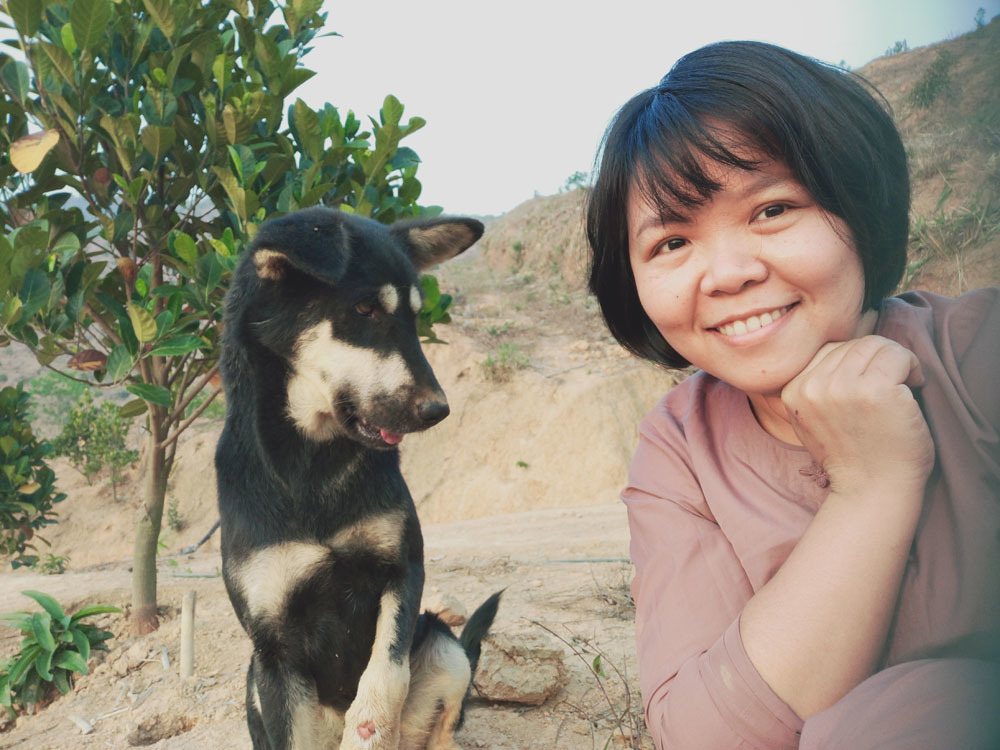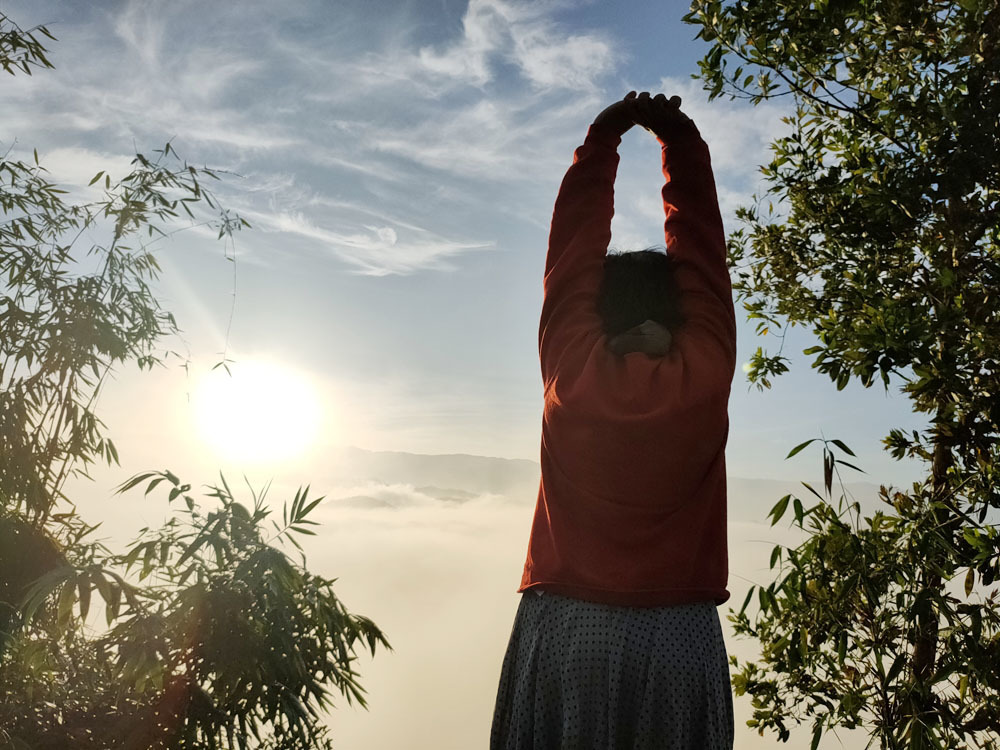To make a call to reporters, Truong Hai Yen had to go to Dam Rong Rown in Lam Dong province, which is 8 kilometers from her tent in Dam Rong district where she lives.

Truong Hai Yen
“The telephone reception is stronger in town,” she explained.
There is no power or phone reception in the place where she lives. She has to find water from underground to serve her daily life, and every time she wants to access the internet, she has to climb on the highest hill. When she wants to buy food, or charge her phone and computer, she has to go to town, 8 kilometers away.
Does she feel uncomfortable with such a life? She smiled. “On the contrary, I find my life extremely interesting,” she said.
Yen, born in 1983 in Kien Giang province, graduated from a university in HCM City. She spent several years working in the city and tried to find a position there. In 2011, she took a job at a relatively large state-owned enterprise.
She was head of a business and marketing team, with high income, promotion opportunities and friendly colleagues. However, Yen admitted that like other office workers, she felt the pressure of modern life.
“I wanted to take a job in the field of environment. I wanted to leave the noisy streets to go to the forest for a long time, but only in 2018 could I quit my job and do what I wanted,” she recalled.
However, her resignations were refused by her boss three times. Finally, he had to accept, saying that she could do what she wanted, but when she felt tired of life in the remote area, she could come back and take the old job.
| There is no power or phone reception in the place where she lives. She has to find water from underground to serve her daily life, and every time she wants to access the internet, she has to climb on the highest hill. When she wants to buy food, or charge her phone and computer, she has to go to town, 8 kilometers away. |
“I left three years ago. But my boss often suggests in conversations between us that I can return,” she said.
Yen has been persistent with her plan to live in an environment close to nature, though many people say she is eccentric.
In 2018, she left HCM City and began work for a wildlife conservation center in Cuc Phuong Forest in Ninh Binh province. After two years, she left the province and went to the Central Highlands, where she and three friends bought land to develop a farm.
They employ E De ethnic minority people to grow orchids and clean vegetables on the land. They also have developed a workshop on making tea and incense from herbs. The activities provide jobs to local people.

The revenue from their business has been used by Yen and her co-workers for charity projects that help ethnic minorities.
Life in the wild forest
“I live in a hut on the hill, where there is no electricity and telecom reception. There is only one solar panel on the farm, just enough to recharge a small lamp. The place is isolated. There is only one household on every hill,” Yen said.
She spends time every morning to check the operation of the farm. After that, she goes to a hill, 800 meters from her hut, to use the internet to make reports and handle necessary work.
In the afternoon, Yen goes to town to buy food and essential goods for the workers. This is also the time for her to recharge her computer and phone. In the evening, she sleeps on a hammock on the hill.
“I want to live in nature to feel the wind, hear frogs and see moonlight. I don’t want to live with walls around me,” she said.
Yen is persistent with her ‘freegan’ principle, i.e. rejecting consumerism and seeking to help the environment by reducing waste. She restricts buying new items and tries to reuse and recycle old things.
She has said ‘no’ to jewelry and cosmetics. She has not been using shampoo and shower gel for many years and instead uses lemon, salt and herbs.
“I cut my hair myself to save money and I don’t use shampoo and dyes. I advocate vegetarianism, eating vegetables and fruits. As my needs are low, I can live well in this environment,” she said.
In order to lead a simple life, she does not use plastic bags and disposable plastic products, and she restricts buying clothes to reduce fashion waste, and uses old things to satisfy her basic needs.
Yen and her friends who live on the farm also pay attention to waste treatment.
“We try not to generate waste, especially plastic waste, which has to be treated by burning,” she said.
They also classify their waste. Organic waste is used as fertilizer for plants, and feed for insects and small animals in the forest. As for inorganic waste, they burn it or sell it as recyclable waste.
Ngoc Trang

Efforts made to reduce plastic waste in oceans
The Vietnamese Government has over the past time exerted a great deal of effort in addressing plastic waste in oceans by introducing various policies and regulations to tackle the scourge.

Local packaging manufacturers go green
Using environmentally friendly and recycled packaging has become a worldwide trend, forcing packaging manufacturers to adapt.